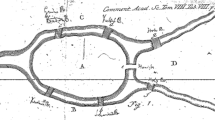Abstract
So-called “manipulation arguments” have played a significant role in recent debates between compatibilists and incompatibilists. Incompatibilists take such arguments to show that agents who lack ultimate control over their characters or actions are not free. Most compatibilists agree that manipulated agents are not free but think this is because certain of the agent’s psychological capacities have been compromised. Chandra Sekhar Sripada has conducted an interesting study in which he applies an array of statistical tools to subjects’ intuitive responses to a manipulation case, and he insists that the results of his study provide compelling evidence that people favor compatibilist views of freedom. I argue that because the case that forms the centerpiece of his study is relevantly different from the sort of cases incompatibilists have developed and because he fails to build deterministic conditions into this case, Sripada’s data cannot help settle the disagreement between compatibilists and incompatibilists.
Similar content being viewed by others
Notes
Ibid., p. 588
In a personal communication, Sripada is explicit that he is not in this study investigating the role of leeway compatibilism (that is, compatibilism according to which agents are free to the extent that they can do otherwise, even given the truth of determinism) but only source compatibilism (that is, compatibilism according to which agents are free to the extent that certain psychological or volitional capacities are intact, irrespective of whether or not determinism is true.) Thus, unless otherwise stated, my use of ‘compatibilism’ in this essay should be understood to denote source compatibilism.
Ibid., p. 564
Ibid, p. 565. Sripada calls this the “critical features problem.” He discusses this problem in more detail in Sripada and Konrath, “Telling More Than We Know About Intentional Action,” Mind and Language, 26, pp. 353–380
Ibid., p. 573
Ibid, p. 573–574
Ibid., p. 569
Ibid., p. 571
Ibid., p. 581
Ibid.
Ibid., p. 588
Ibid., p. 583
Ibid., p. 573, note 9.
Pereboom, p. 112–113
Ibid., p. 112
Ibid., pp. 112–113
Sripada, p. 571
Ibid.
Clearly it is possible for an agent who has been constructed “from scratch” to have values, attitudes, and commitments that are discordant with one another. However, the judgments about deep self discordance that Sripada claims ground his subjects’ compatibilist intuitions are judgments about something more than discordance, per se. They are judgments about discordance between values, attitudes, and commitments that have been manipulated and those that exist prior to and independent of any manipulation, i.e., those that are in some sense the “real” or “genuine” or “authentic” values, attitudes, and commitments of the manipulated agent. Thus, deep self discordance simply cannot enter the equation with respect to an agent like Pereboom’s Plum in Case 1 or Case 2, for here Plum has no values, attitudes, or commitments that exist prior to or independent of his creation by neuroscientists. In these cases Plum’s attitudes, values, and commitments have been manipulated “all the way down.” I wish to thank an anonymous reviewer at this journal for helping me clarify this point.
Pereboom, p. 113
I would like to thank [an anonymous referee] for pointing out that Bill plausibly fails to satisfy Frankfurt’s conditions for freedom, and is thus relevantly different in yet another respect from Pereboom’s Plum.
Sripada, p. 574
Ibid., p. 570
Pereboom, p. 113
Ibid.
Sripada, p. 574. Emphasis mine.
Pereboom, p. 113
References
Frankfurt, H. (1971). Freedom of the will and the concept of a person. The Journal of Philosophy, 68(1), 5–20.
Pereboom, D. (2001). Living without free will. Cambridge University Press.
Sripada, C. S. (2012). What makes a manipulated agent unfree? Philosophy and Phenomenological Research, 85(3), 563–593.
Acknowledgments
I would like to thank Michael McKenna for providing me with helpful comments on an earlier draft of this paper. I also benefited from an email exchange with Chandra Sripada.
Author information
Authors and Affiliations
Corresponding author
Rights and permissions
About this article
Cite this article
Gorin, M. What Makes an Intuition a Compatibilist Intuition? A Response to Sripada. Philosophia 41, 1205–1215 (2013). https://doi.org/10.1007/s11406-013-9446-1
Received:
Revised:
Accepted:
Published:
Issue Date:
DOI: https://doi.org/10.1007/s11406-013-9446-1




